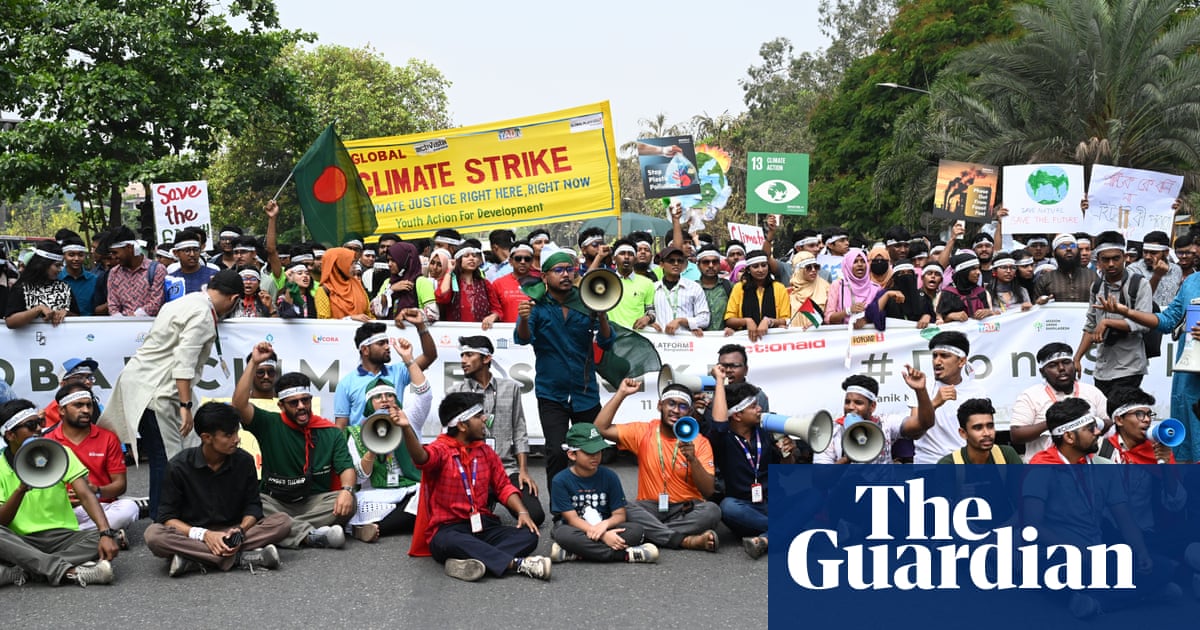A huge 89% majority of the world’s people want stronger action to fight the climate crisis but feel they are trapped in a self-fulfilling “spiral of silence” because they mistakenly believe they are in a minority, research suggests.
Making people aware that their pro-climate view is, in fact, by far the majority could unlock a social tipping point and push leaders into the climate action so urgently needed, experts say.
The data comes from a global survey that interviewed 130,000 people across 125 countries and found 89% thought their national government “should do more to fight global warming”.
It also asked people if they would “contribute 1% of their household income every month to fight global warming” and what proportion of their fellow citizens they thought would do the same. In almost all countries, people believed only a minority of their fellow citizens would be willing to contribute. In reality, the opposite was true: more than 50% of citizens were willing to contribute in all but a few nations.
The global average of those willing to contribute was 69%. But the percentage that people thought would be willing was 43%. The gap between perception and reality was as high as 40 percentage points in some countries, from Greece to Gabon.
Further analysis of the survey data for the Guardian showed that public backing for climate action was as strong among the G20 member countries as in the rest of the world. These states, including the US, China, Saudi Arabia, UK and Australia, are responsible for 77% of global carbon emissions.
“One of the most powerful forms of climate communication is just telling people that a majority of other people think climate change is happening, human-caused, a serious problem and a priority for action,” said Prof Anthony Leiserowitz at Yale University in the US.
Prof Cynthia Frantz, at Oberlin College in the US, said. “Currently, worrying about climate change is something people are largely doing in the privacy of their own minds – we are locked in a self-fulfilling spiral of silence.”
Dr Niall McLoughlin, at the Climate Barometer research group in the UK, said: “If you were to unlock the perception gaps, that could move us closer to a social tipping point amongst the public on climate issues.”
The existence of a silent climate majority across the planet is supported by several separate analyses. Other studies demonstrate a clear global appetite for action, from citizens of rich nations stronglysupporting financial support(pdf) for poorer vulnerable countries and even those inpetrostates backing a phase-out of coal, oil and gas. A decades-long campaign of misinformation by the fossil fuel industry is a key reason the climate majority has been suppressed, researchers said.
Prof Teodora Boneva, at the University of Bonn, Germany, who was part of the team behind the 125-nation survey, said: “The world is united in its judgment about climate change and the need to act. Our results suggest a concerted effort to correct these misperceptions could be powerful intervention, yielding large, positive effects.”
The 125 countries in the survey account for 96% of the world’s carbon emissions, and the results werepublished in the journal Nature Climate Change. People in China, the world’s biggest polluter, were among the most concerned, with 97% saying its government should do more to fight climate change and four out of five willing to give 1% of their income. Brazil, Portugal, and Sri Lanka also ranked highly.
The world’s second biggest polluter, the US, was near the bottom, but 74% of its citizens still said its government should do more, while 48% were willing to contribute. New Zealand, Norway and Russia were also relatively low-scoring.
Sign up toDown to Earth
The planet's most important stories. Get all the week's environment news - the good, the bad and the essential
after newsletter promotion
Research has also found that politicians suffer from serious misperceptions. In the UK,MPs vastly underestimated public supportfor onshore windfarms. In the US, almost 80% ofcongressional staffers underestimated people’s support for limits on carbon emissions, sometimes by more than 50 percentage points.
“Perception gaps can have real consequences – they could mean that climate policies are not as ambitious as the public sentiment,” said McLoughlin.
Substantial evidence exists thatcorrecting mistaken beliefs about the views of otherscan change people’s views on many subjects, from opinions on immigrants and violence against women, toenvironmental topicssuch assaving energy. This is because people are instinctively drawn to majority views and are also more likely to do something if they think others are doing it too.
“People deeply understand we are in a climate emergency,” said Cassie Flynn, at the UN Development Programme, whosePeople’s Climate Votein 2024 found 80% of people wanted stronger climate action from their countries. “They want world leaders to be bold, because they are living it day to day. World leaders should look at this data as a resounding call for them to rise to the challenge.”
This story is part ofThe 89 Percent Project, an initiative of the global journalism collaborationCovering Climate Now
